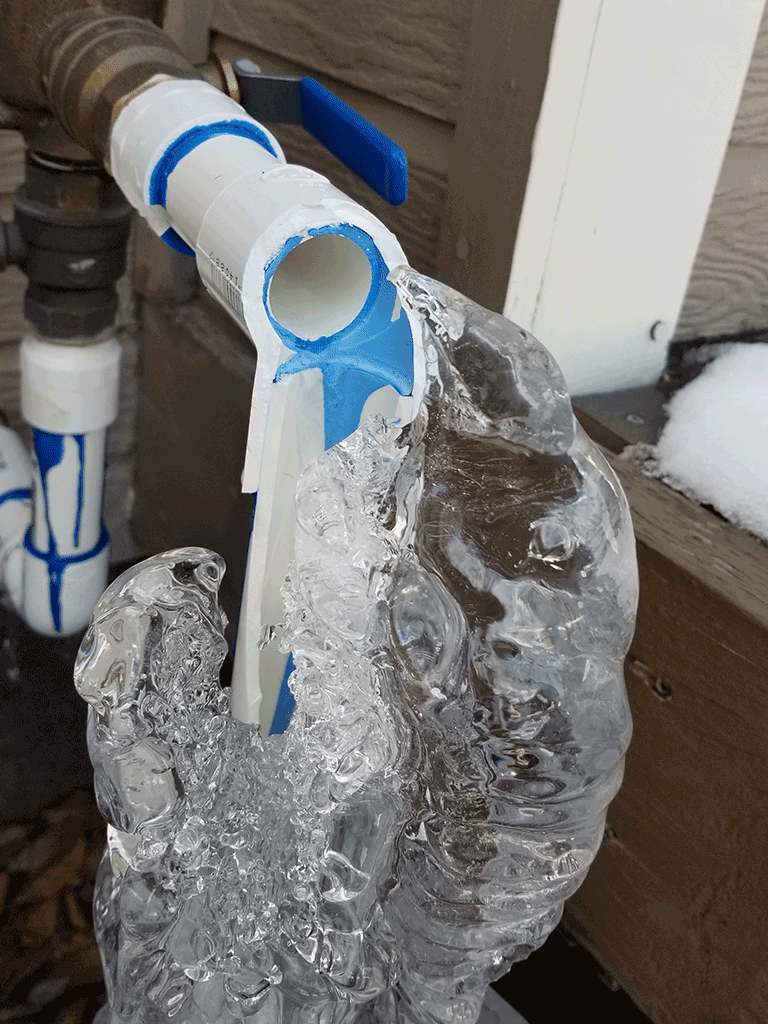The article author is making a number of great points on the subject of Prevent Frozen Pipes in general in this article down the page.

Winter can damage your pipes, particularly by freezing pipelines. Below's just how to prevent it from occurring and what to do if it does.
Intro
As temperature levels decline, the danger of icy pipelines increases, potentially bring about expensive repair work and water damages. Comprehending just how to stop icy pipes is essential for home owners in cold climates.
Prevention Tips
Shielding prone pipelines
Wrap pipes in insulation sleeves or utilize warm tape to safeguard them from freezing temperatures. Focus on pipes in unheated or outside locations of the home.
Heating techniques
Keep indoor spaces appropriately heated, particularly locations with pipes. Open up cabinet doors to permit warm air to distribute around pipes under sinks.
Just how to identify icy pipelines
Seek reduced water flow from faucets, uncommon smells or noises from pipelines, and visible frost on revealed pipelines.
Long-Term Solutions
Architectural adjustments
Take into consideration rerouting pipes away from outside wall surfaces or unheated locations. Include extra insulation to attics, cellars, and crawl spaces.
Upgrading insulation
Buy high-quality insulation for pipelines, attics, and wall surfaces. Appropriate insulation helps preserve constant temperatures and reduces the threat of icy pipelines.
Protecting Exterior Pipes
Yard hoses and outside taps
Detach and drain yard tubes prior to wintertime. Install frost-proof faucets or cover outdoor taps with insulated caps.
Comprehending Icy Pipelines
What creates pipelines to freeze?
Pipelines ice up when revealed to temperature levels listed below 32 ° F (0 ° C) for expanded periods. As water inside the pipelines freezes, it broadens, taxing the pipe walls and potentially causing them to burst.
Dangers and damages
Icy pipes can result in supply of water disturbances, property damages, and expensive fixings. Ruptured pipes can flood homes and create considerable architectural damage.
Signs of Frozen Water Lines
Recognizing frozen pipelines early can stop them from breaking.
What to Do If Your Pipes Freeze
Immediate actions to take
If you think frozen pipelines, keep taps open up to soothe stress as the ice melts. Utilize a hairdryer or towels soaked in warm water to thaw pipelines gradually.
Final thought
Preventing frozen pipes calls for proactive actions and fast feedbacks. By understanding the reasons, indications, and preventive measures, homeowners can safeguard their plumbing during cold weather.
Helpful Tips to Prevent Frozen Pipes this Winter
UNDERSTANDING THE BASICS: WHY PIPES FREEZE AND WHY IT’S A PROBLEM
Water freezing inside pipes is common during the winter months, but understanding why pipes freeze, and the potential problems it can cause is crucial in preventing such incidents. This section will delve into the basics of why pipes freeze and the associated problems that may arise.
THE SCIENCE BEHIND FROZEN PIPES
When water reaches freezing temperatures, it undergoes a physical transformation and solidifies into ice. This expansion of water as it freezes is the primary reason pipes can burst. As the water inside the pipe freezes, it expands, creating immense pressure on the walls. If the pressure becomes too great, the pipe can crack or rupture, leading to leaks and water damage.
FACTORS THAT CONTRIBUTE TO PIPE FREEZING
Low Temperatures: Extremely cold weather, especially below freezing, increases the risk of pipes freezing. Uninsulated or Poorly Insulated Pipes: Pipes located in unheated areas, such as basements, crawl spaces, or attics, are more prone to freezing. Insufficient insulation or lack of insulation altogether exacerbates the problem. Exterior Wall Exposure: Pipes running along exterior walls are susceptible to freezing as they encounter colder temperatures outside. Lack of Heating or Temperature Regulation: Inadequate heating or inconsistent temperature control in your home can contribute to frozen pipes. PROBLEMS CAUSED BY FROZEN PIPES
- Pipe Bursting: As mentioned earlier, the expansion of water as it freezes can cause pipes to burst, resulting in significant water damage.
- Water Damage: When pipes burst, it can lead to flooding and water damage to your property, including walls, ceilings, flooring, and personal belongings.
- Structural Damage: Prolonged exposure to water from burst pipes can compromise the structural integrity of your home, leading to costly repairs.
- Mold and Mildew Growth: Excess moisture from water damage can create a favorable environment for mold and mildew growth, posing health risks to occupants.
- Disrupted Water Supply: Frozen pipes can also result in a complete or partial loss of water supply until the issue is resolved.
WHY CERTAIN PIPES ARE MORE PRONE TO FREEZING
- Location: Pipes located in unheated or poorly insulated areas, such as basements, crawl spaces, attics, or exterior walls, are at higher risk of freezing.
- Exterior Pipes: Outdoor pipes, such as those used for irrigation or exposed plumbing, are particularly vulnerable to freezing as they are directly exposed to the elements.
- Supply Lines: Pipes that carry water from the main water supply into your home, including the main water line, are critical to protect as freezing in these lines can affect your entire plumbing system.
- Underground Pipes: Pipes buried underground, such as those connected to sprinkler systems or outdoor faucets, can be susceptible to freezing if not properly insulated.
https://busybusy.com/blog/helpful-tips-to-prevent-frozen-pipes-this-winter/

We had been shown that article on Prevent Frozen Pipes from a good friend on a different web address. Are you aware of anybody else who is fascinated about the subject? Why not promote it. Thank-you for taking the time to read it.
Click Here